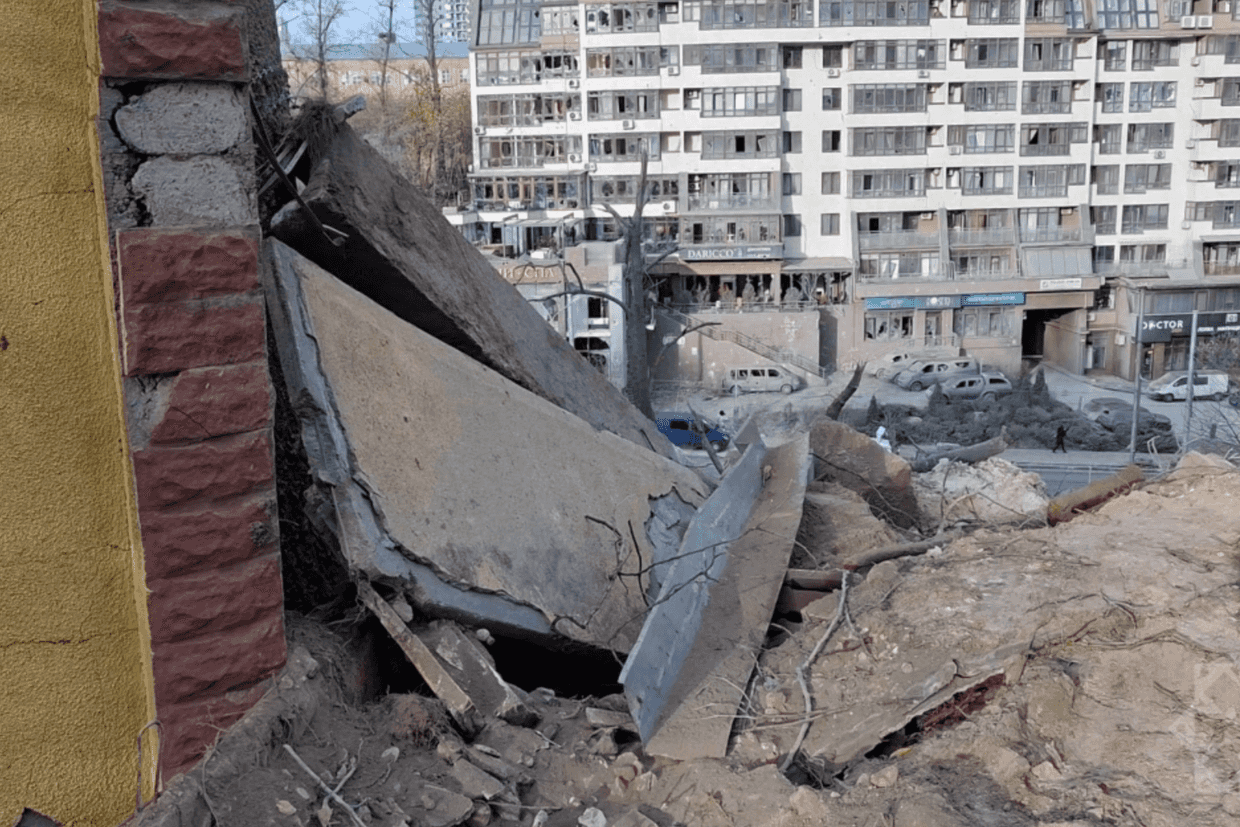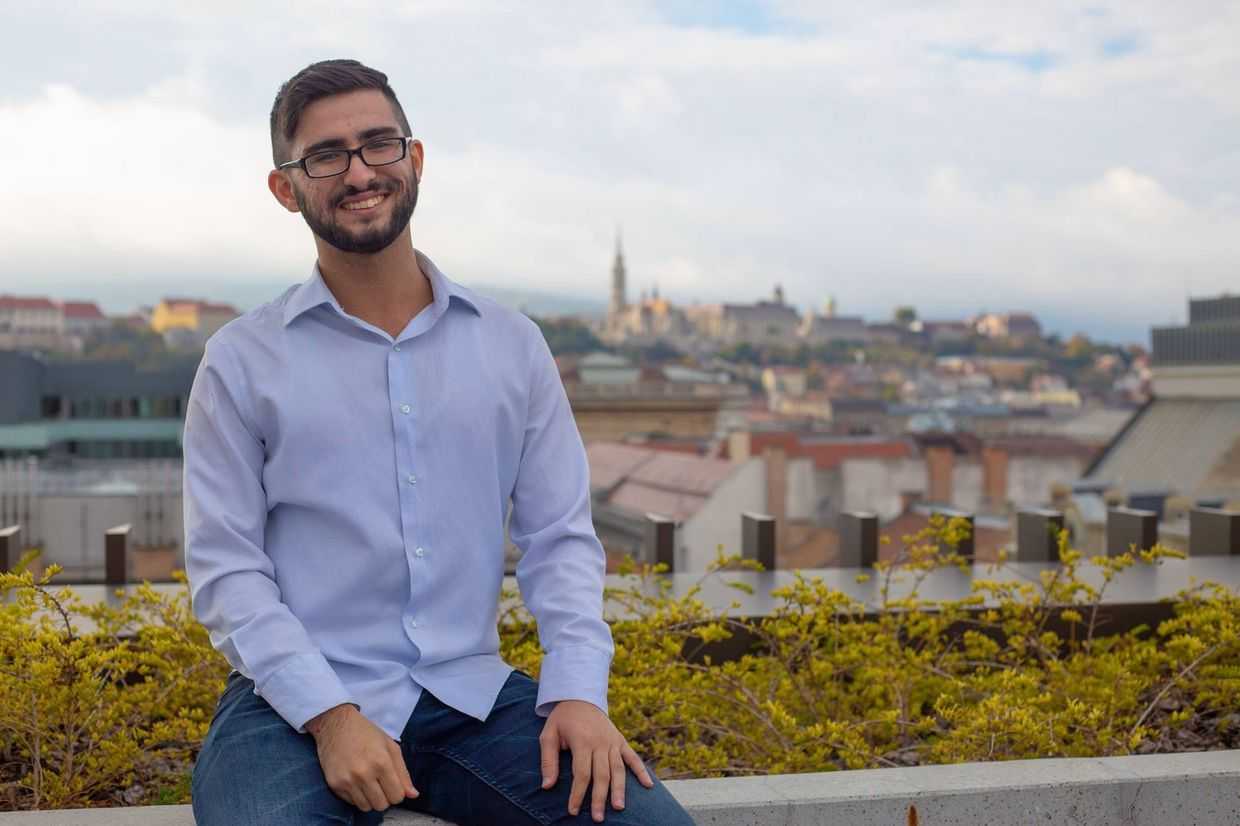Deportations from the West: the story of families sent back to Azerbaijan
Activists deported back to Azerbaijan are at a constant risk of being detained on drug charges or accused of other criminal acts.

On 2 May, a group of men dressed in civilian clothes raided disabled activist Famil Khalilov’s house in the Sulutepe settlement in Baku. Khalilov, whose arms are entirely paralysed, was being bathed by his wife, Kichikkhanim Khalilova.
‘There was a knock on the door. My little daughter opened the door, and then she came up and told me that there were uncles outside calling for me. When I came out, they introduced themselves as police’, Khalilova tells OC Media.
After she took her husband out of the bathroom, she saw many people in black clothes in the hall and the house’s second floor, who proceeded to search the entire house.
‘They dragged Famil out of the house into the yard. After that, they took him back to the house and filmed him’, Khalilova says.
‘The investigator took a blue napkin from his chest pocket, and said that there was something white in there. I insisted that it did not belong to us. They showed a small packet to us and after that said Famil was selling drugs.’
The police took Khalilov and his family to the police station, where they demanded the passwords to Khalilov’s phone and computer. After they refused, Khalilov’s eight-year-old daughter was taken by police to another room, where she showed the police how her father opened his phone. After that, they were all allowed to go home, Khalilova says, with the exception of Famil, who was detained.
‘My children were frightened and they hid under the table at home; no one worried about their situation,’ Khalilova tells OC Media. ‘Since that day, my children keep the door closed, and if it is not me, they refuse to open it. They are still scared of the police’.
‘My son asked me about his father and I couldn’t say anything’
Khalilov and his family originally lived in the village Digah in Azerbaijan, where he faced abuse from the other villagers due to his disabilities. The abuse eventually led Khalilov and his family to immigrate to Sweden in July 2015.
In Sweden, Khalilov continued to criticise the Azerbaijan government. However, according to the Swedish Migration Centre, the Khalilov family were not political refugees, but rather migrants who required humanitarian support.

After eight years of fighting with the migration services in Sweden, in July 2023, the family was deported back to Azerbaijan.
‘When they deported us from Sweden, they told us that nothing would happen to us because my husband is a disabled person, that no one would hurt us in Azerbaijan. The Swedish Migration Service told us that Azerbaijan is a rich country, and that we await a comfortable life’, Khalilova tells OC Media.
Less than a year later, Khalilov’s house was searched and he was detained.
‘In the police station, a police officer insulted me and asked why I allowed Famil write such things about our country’, Khalilova says about the time immediately after her husband was detained.
‘He could not move his hands and I did everything for him. He couldn’t drink water without my help, and he writes with his toes. When the police arrested Famil, they insulted me, because they thought I helped him in writing his posts on social media. They did not believe me that he could write his posts himself’, she adds.
Khalilova struggles with thinking about how she will financially cover the needs of her husband, and also how her husband survives in prison with paralysed hands. She also worries for her children who suffer from their father’s absence.
‘My son asked me about his father and I couldn't say anything. I haven’t replied to his question about when his father will return home’, Khalilova says.
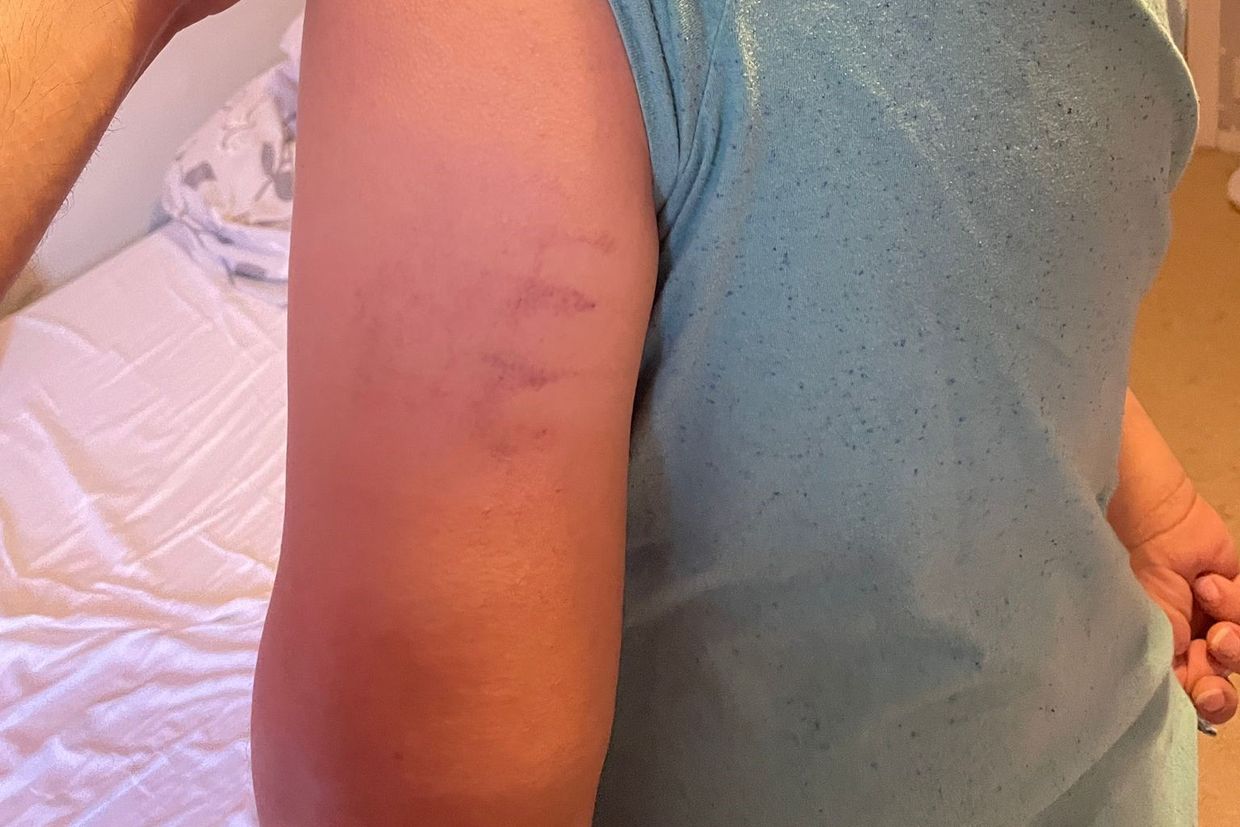
On 15 August, Khalilov began a hunger strike in order to force the authorities to release him on house arrest. After more than 80 days, Khalilov ended his hunger strike on 10 November after his health deteriorated to the extent that his legs are now also paralysed. On 28 November, however, he began his hunger strike again, after promises that he would be released on house arrest did not come to fruition. Finally, on 3 December, almost seven months after he was originally detained, Khalilov was released on house arrest, still awaiting a full trial regarding the charges of drug trafficking.
‘We were not even allowed to take our clothes’
Khalilov is only one of the Azerbaijani activists deported from Western countries in recent years.
In 2018, activist Samir Ashurov joined a protest in Baku demanding freedom for political prisoners; he also shared his opinions on social media. That year, he was arrested two times by the Azerbaijani authorities: once for public disturbance and the second on drug charges. It was at this point he realised he was no longer safe in Azerbaijan, after which he decided to emigrate with his family to Germany, his wife Nurana Ashurova tells OC Media.
They moved to the small Bavarian town of Grafenau, where the family attended multiple court hearings, during which they were told that no one would arrest them for sharing opinions on social media because Azerbaijan was a democratic country.
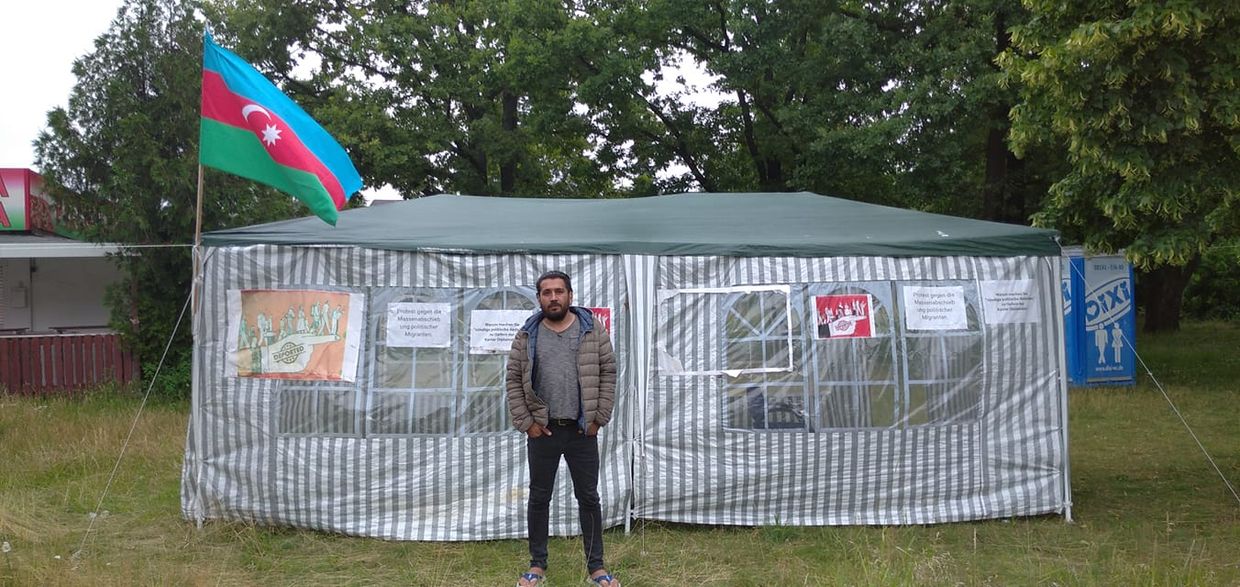
After their residency permit was rejected for the second time, Ashurov held a solo protest in front of the migration centre for 35 days.
When the family again attempted to register as political refugees, Ashurova says they did not provide the authorities with any new documentation about how her husband was tortured in Azerbaijan, because by this point, they had been living in Germany for three years.
Their status was rejected again, and after a subsequent attempt to appeal, they were deported back to Azerbaijan in March 2023.
‘On 29 March we were not even allowed to take our clothes. Samir was in a t-shirt and his hands were in handcuffs. His hands were released by the German police only half an hour before arriving at the Baku Airport. From Germany, four police officers accompanied us to Baku. When we arrived, Azerbaijani police interrogated Samir for around three hours, and after that, we were released’, Ashurova says.
Two days after that, Ashurov was summoned by the police and was interrogated about the trafficking of migrants for around four hours.
According to her, the family was followed multiple times by unknown cars and by police in civilian clothing. They changed their residence several times, but nothing helped.
‘When Samir left the house, he said goodbye to us every time, like it may be the last time’, she tells OC Media.
After 31 March, when Ashurov was released from detention for the first time, he spoke with journalists about how he might be arrested for his political views. Shortly after, on 5 April, when opposition party Musavat member Aziz Mamiyev was arrested, Ashurov stood in front of the police car, attracting further attention from the police.
‘On 19 April, Samir was going to visit his father, and after a couple of hours, he messaged me that he was on the way home. I asked him to buy juice for the children, and he replied “Okay”. After that, he did not respond to all my calls and messages’, Ashurova says.
Her husband had been arrested in front of the grocery store.
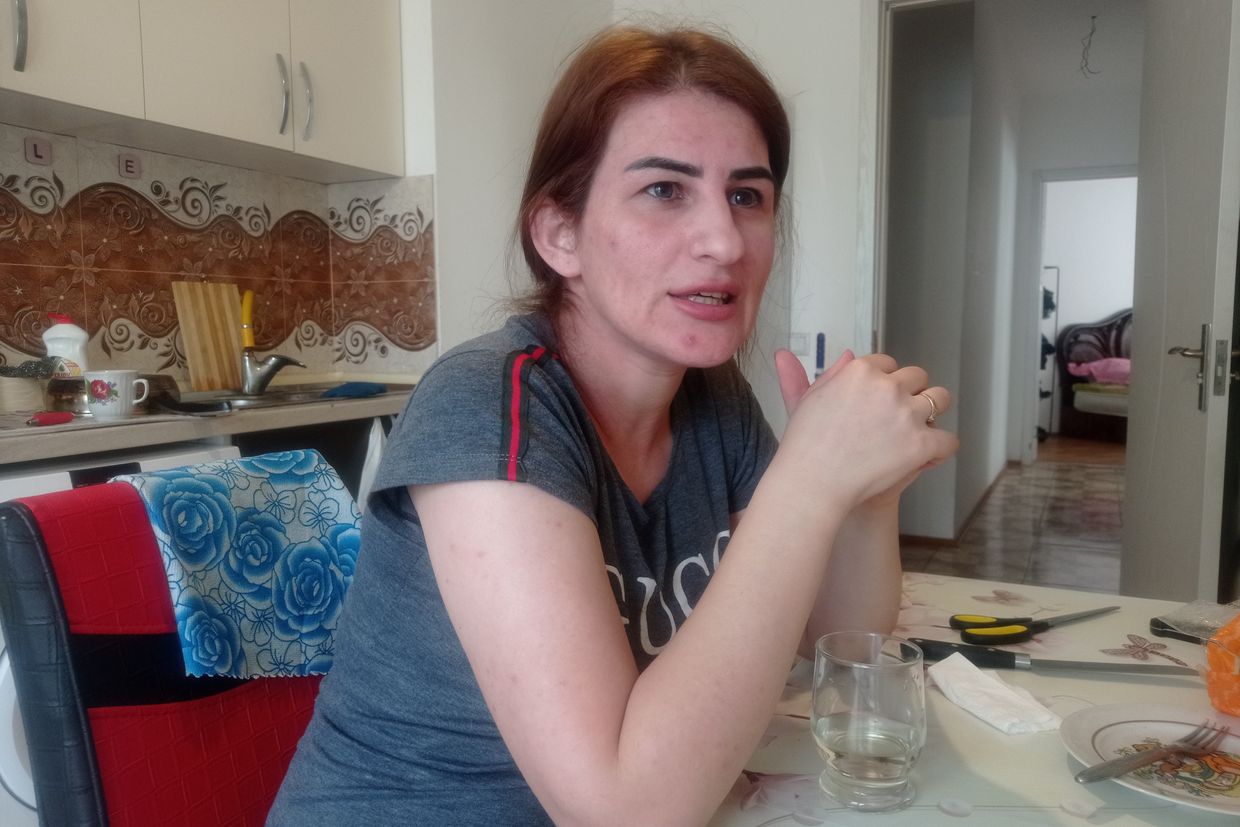
According to the indictment, Ashurov was accused of stabbing Elshan Nabiyev in the street in the Nizami district of Baku in April 2023.
After speaking to the head of the Shaki District Executive Department, Mazahir Mammadov, and Nabiyev’s lawyer Nazim Mehdiyev, OC Media has learned that Nabiyev has had multiple criminal cases opened against him for fraud and is still currently wanted by police. His whereabouts remain unknown.
In Ashurov’s statement to the court in December 2023, he claimed that on that day, one person had attacked him and that he tried to run, shouting for help. Instead, police officers dressed in civilian clothing arrested him, placing a knife in his pocket. He also stated that he did not know Nabiyev.
Despite his statements, the court found Ashurov guilty of intentional infliction of grievous bodily harm from hooligan motives and hooliganism committed with the use of a weapon or an object used as a weapon, sentencing him to six years and six months in prison.
‘There is no evidence of his guilt’
Afgan Mukhtarli, an Azerbaijani journalist who lives in exile in Germany, tells OC Media that he knows of at least six people besides Samir Ashurov, who were deported from Germany to Azerbaijan, and then arrested by Azerbaijani authorities on charges of drug trafficking.
One of them, Emin Malikov, was deported back to Azerbaijan directly from a specialised German hospital for mental health in March 2023.
Fakhraddin Mehdiyev, a human rights defender, tells OC Media that Malikov was detained just one week after his return to Azerbaijan. He adds that in December 2023, Malikov was charged with selling drugs, and was subsequently sentenced to six years in prison.
‘He was defended by a lawyer hired by the state, and that lawyer never appealed the court’s claims’, Mehdiyev says.
Mehdiyev took Malikov’s case on appeal, arguing that he should be acquitted because ‘there is no evidence of his guilt’.
The last time he met with Malikov in person was in December 2023.
‘His health condition was not good, and he was in the prison hospital. At the same time, he did not remember all that happened to him. He suffers from mental illness, ’, Mehdiyev says.
Another deportee, Mutallim Orujov, a member of the opposition Popular Front Party, was arrested in October 2021, three months after he was deported from Germany. Once again, the charges were drug trafficking.

The head of the Azerbaijan Parliament’s Human Rights Committee, Zahid Oruj, told local media at the time that none of Orujov’s family members had contacted him, and that if family members of those deported back to Azerbaijan reached out to the committee, they would take their cases under consideration.
Orujov’s son, Elvin Orujov, tells OC Media that he had contacted the committee via Oruj’s assistant, but never received a response.
Germany is one of the most popular countries for Azerbaijani dissidents to move to. Between 2014-2024, according to Germany’s Federal Office of Migration and Refugees, 1,952 people, and 233 people were deported in 2023 back to Azerbaijan.
OC Media reached out to the Azerbaijan State Migration Service for clarification on the statistics of Azerbaijani citizens who left the country for Germany, but did not receive a response.
According to Mukhtarli, the Azerbaijani government should follow the readmission agreement signed with the EU on 28 February 2014; similar agreements were signed separately with Norway, Sweden, Serbia, and Montenegro. These agreements impose certain obligations on Azerbaijan, including a prohibition on the unjustified targeting of returned citizens.
He notes that whether a deportee is later detained in Azerbaijan depends on their involvement in political activities when abroad.
Human rights lawyer Fariz Namazli tells OC Media that drug possession charges are easier to ‘prove’ than other charges, requiring only witness testimony.
[Read more: Planted drugs and physical abuse: the detention of Muslim activists in Azerbaijan]
He notes that investigative bodies often extract ‘confessions’ from detainees through threats and torture, explaining the frequency with which government opponents were found to have admitted to trafficking drugs.
‘In cases when […] a person is searched, drugs are allegedly found on him, and the person “confesses” that he either found the drugs or bought them from an unknown person, it is clear how these confessions were obtained’, says Namazli.
‘This is why cases of bringing charges of illegal drug trafficking are widespread in practice.
Following his arrest, Samir Ashurov’s wife Nurana and their children emigrated to Tbilisi, where they hoped to start a new life.
On 29 November, the Migration Service at the Georgian Ministry of Internal Affairs rejected their request for asylum. While Nurana Ashurova has appealed the decision, she has no guarantee that she will win — and no expectation of safety if she is forced to return to Azerbaijan.
Read in Azerbaijani on Abzas Media.





